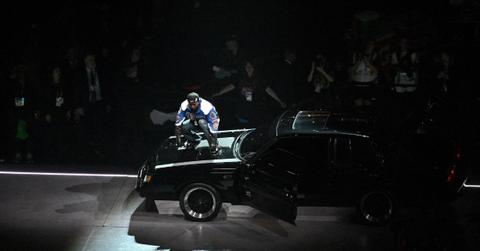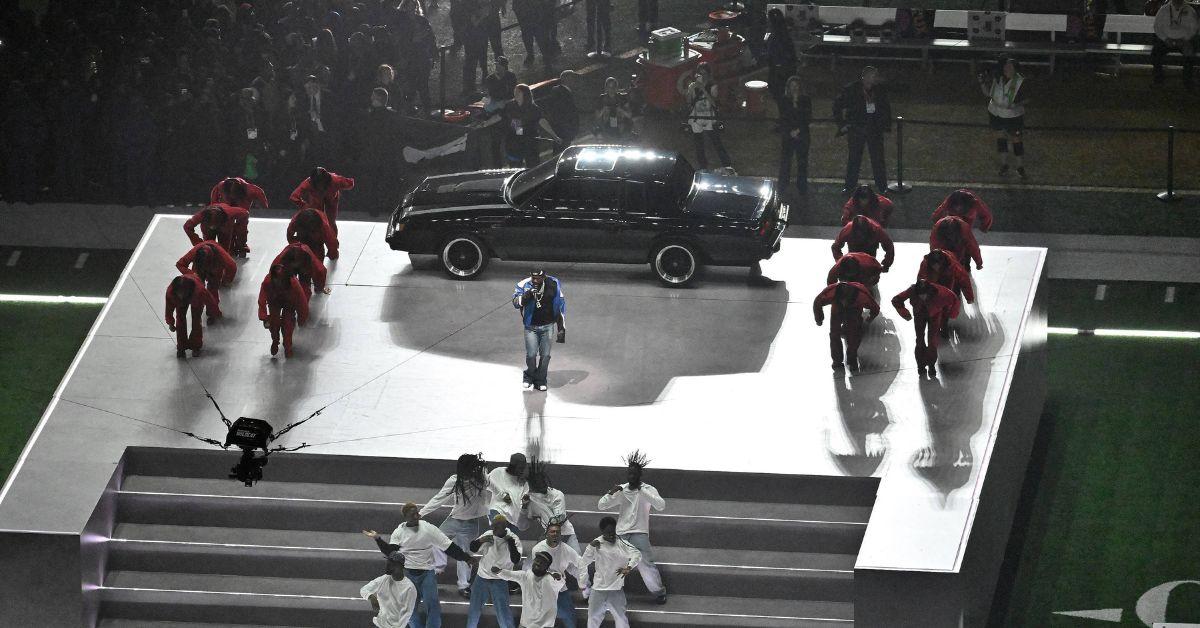Kendrick Lamar's "40 Acres and a Mule" Reference Was All About Reparations
Kendrick Lamar's reference is a reminder of all the injustice Black people have suffered.
Published Feb. 11 2025, 12:35 p.m. ET

Although his Super Bowl halftime show didn't include any explicit condemnation of any political figures, Kendrick Lamar nonetheless infused politics in every moment of his performance on one of the world's biggest stages. Among the many references Kendrick made, the rapper referred to "40 acres and a mule," leading some to wonder what that phrase means.
“40 acres and a mule, this is bigger than the music. They tried to rig the game, but you can’t fake influence," he said during the performance. Here's what we know about what Kendrick meant by the phrase and its long history in American culture.

What does "40 acres and a mule" mean to Kendrick Lamar?
"40 acres and a mule" is a phrase that dates back to the period immediately following the Civil War. It was a promise made to the formerly enslaved people in the aftermath of the war, essentially a form of reparations that ensured that Black people would be able to thrive after centuries of being held in bondage. The promise came from Special Field Order No. 15, which was issued by Union General William Tecumseh Sherman, and would have redistributed Confederate land to the enslaved.
Of course, this promise ultimately went unfulfilled, as after Abraham Lincoln's assassination, the order was rescinded by Andrew Johnson and the land was turned back over to the former confederates. This not only represented a promise to Black people that was broken, but it also helped to perpetuate systemic societal and economic inequalities that have persisted to this day.
Kendrick's invocation of this unfulfilled promise, then, is a reminder of all the ways the United States government has always failed to live up to its word for a huge swath of the population. Centuries later, reparations are still a hotly debated topic, and what's clear is that it all would have been so much simpler if the traitors who betrayed their country didn't just get their land back after the war.
Kendrick Lamar has always infused the fight for racial justice into his music.
Although Kendrick has never endorsed specific candidates or political parties, his music has always been infused with political messaging, and the Super Bowl was no exception. Even outside of his "40 acres and a mule" reference, Kendrick arranged Black bodies in the shape of the American flag and recruited Samuel L. Jackson to play a Black version of the iconic Uncle Sam.
These things in combination serve as a reminder that Black people are here, and they have been wronged for centuries by this country. Kendrick's performance was provocative and entertaining in equal measure.
It also seemed to really upset a lot of people on the right, some of whom claimed they had never heard of Kendrick (which seems unlikely). Racial injustice is not going to end anytime soon, and Kendrick's performance was designed to remind us of that. You might call it racism or anti-DEI sentiment, but whatever you call it, there are real people affected by these stances, and Kendrick is among them.